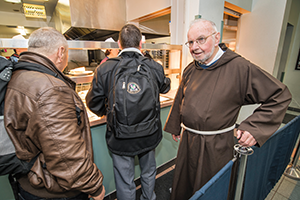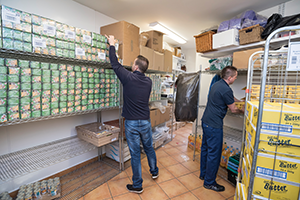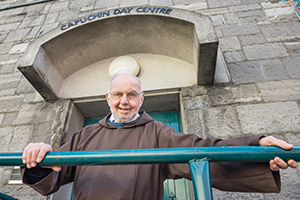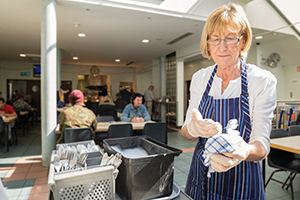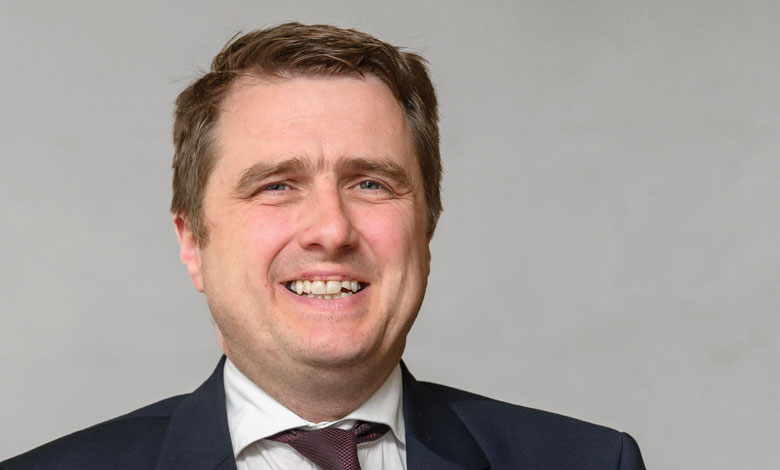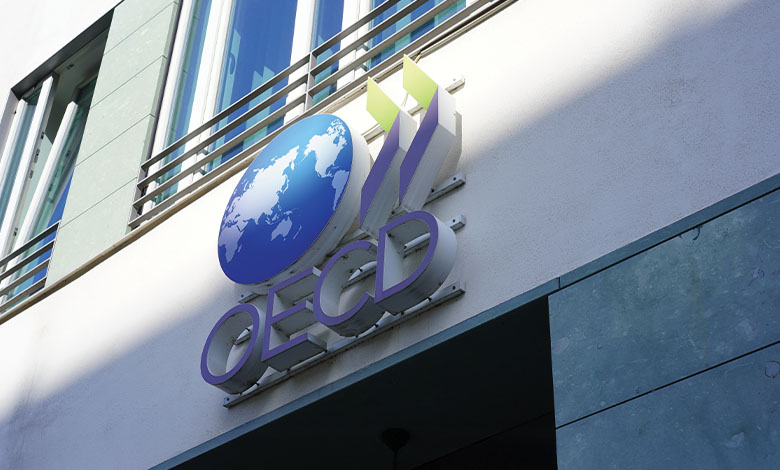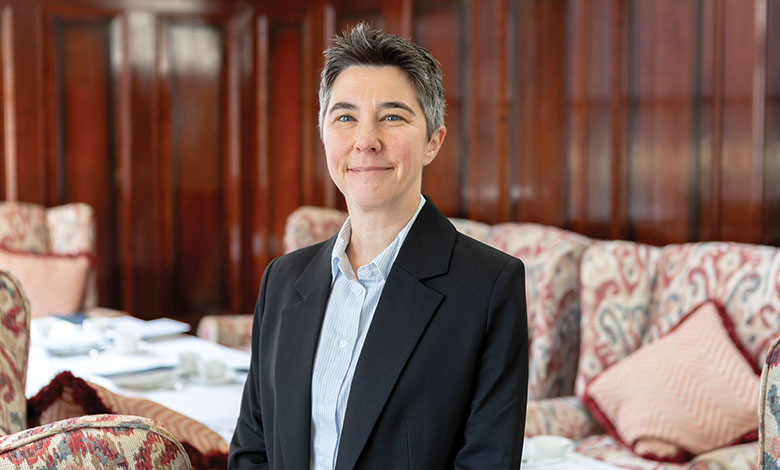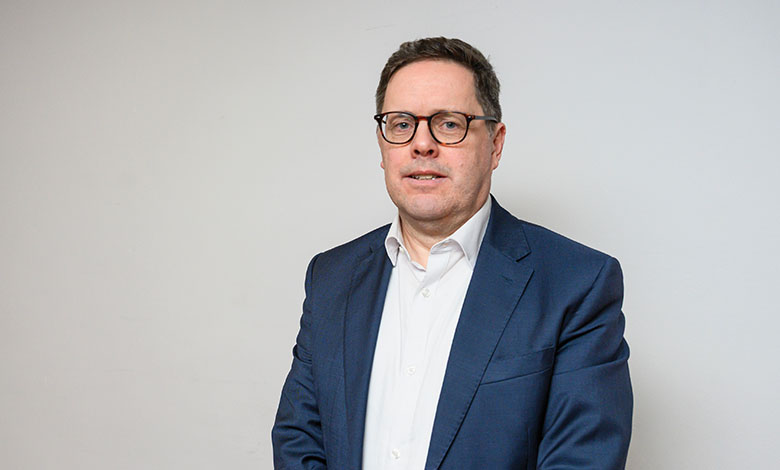The social housing challenge in a housing system at the crossroads
18th September 2015Shaping a positive future
18th September 2015Inner city goodwill
Brother Kevin Crowley, 80, founded the Capuchin Day Centre for Homeless People in inner city Dublin in 1969. He tells Gráinne McCarry the level of need for their services today is dire.
When the Capuchin Day Centre opened its doors in Dublin almost half a century ago it was not just to provide warm food and nourishment to the city’s homeless, it was to “restore their dignity.”
Founder and director Brother Kevin Crowley recalls: “We saw that people had nowhere to go in the day-time and they were just walking the streets and using the churches.
“I felt that it wasn’t at all dignified that these people had to walk the streets.”
Back then, about 50 people a day availed of the service – receiving tea, sandwiches and soup. They were mostly men and alcohol abuse was the main issue.
Brother Kevin describes the current level of need in 2015 as “dire”, the chronic housing shortage as “appalling”, and the number of people sleeping rough as “absolutely diabolical.”
The day centre is in a converted building in Bow Street, behind the Capuchin Friary and St Mary of the Angels Church. It opens at 7am six days a week to provide a hot drink to rough sleepers. A full breakfast is served to an average of 300 men, women and children while up to 600 receive a three course lunch. The native of Enniskeane, west Cork says it’s important that the highest standard of food is provided to “maintain the dignity and respect” of all who come through the doors.
Over the decades, the day centre has expanded its services. There is now a full-time nurse and a doctor’s service three days a week paid for by the Health Board. Clothing and toiletries are provided along with shower facilities. Once a fortnight, an optician is available. Ten paid staff help run the centre and among the over 200 volunteers are dentists and chiropodists.
Running costs are at an all-time high – last year, it cost the Capuchin Day Centre €2.3 million to provide their services. Their annual funding from the Government has been €450,000 since 2007. While it has not increased to meet the current level of need, in these times of austerity Brother Crowley is grateful that it has not been cut.
He continues: “We don’t ask questions [to those using the facilities] because we find it’s difficult enough for people to be using a place like ours without putting all sorts of questions to them.”
He recalls one occasion when a woman drove up in a car. “I happened to be on the door myself and I did say to her: ‘If you are using a car, is there a need for you to be availing this service?’
The woman burst into tears at his question. “She said: ‘Look this is my home. My husband is after beating me up and throwing me out. All I have is in this car.’ I’ve never asked any questions since then.”
He insists that he does not worry about paying the bills. “The Good Lord always provides. We, being followers of St Francis, believe that Francis is not going to leave us short.”
Brother Kevin is seeing an increasing number of “the new poor” using the day centre – those who’ve fallen on hard times due to the recession. They may not be homeless, yet, but are on the verge of house repossession or are languishing on housing lists. He sees them join the queue on a Wednesday morning when the centre offers food parcels. Pre-recession, up to 400 parcels were handed out. Now, it’s up to 1,700 with the queue stretching right down Bow Street. He admits that he has never known a level of debt like that of today.
There’s been a stark rise in the number of women and children using the facilities. Inside the centre, a special area is sectioned off for families to keep children safe from harm. There have been drug overdoses on the premises, he says.
“We have people coming in with babies of only a few months old. That is one of my biggest concerns, my biggest worries – to see little children coming into a place like this for food.
“In this day and age, it’s appalling to think we have people queueing up for food.”
“It makes me feel dreadful,” he admits. “It’s their only means. Some of them have no accommodation other than staying in hotels provided by the government.” While they may have a bed, food is not covered. He describes the situation as “not at all appropriate” for children.
Last December, there was a public outcry when a homeless man was found dead on the steps of Dáil Éireann. “Several people have died on the streets since and there hasn’t been a fuss made of it. To me, just because the man died outside the Dáil, the government was screaming, everybody was screaming. The problem is still as bad – if not even worse. To me, it’s worse.”
He adds that many people are sleeping rough because they are afraid to stay in some of the hostels at night because of the drug scene. “They are afraid of being attacked, they are afraid of being robbed. A man came into me recently whose shoes and socks were stolen on him while he was sleeping. Another guy had his coat and jumper stolen.
“I know one man who sleeps in the graveyard because he feels it’s the safest place for him. He feels he’s not going to be attacked there – that at least the dead will protect him.”
Drug addiction has taken over from alcohol abuse as a major factor in homelessness, particularly among young people, Brother Kevin adds. “Some of them are crying for help, they need help, they need to get off the drugs but there is not sufficient help there for them.”
He continues: “One of the things that really worries me is the way that needles are distributed to people. I feel strongly that if the health service is giving needles out they should be supervised, rather than giving them needles, having them going out on the streets looking for somewhere to shoot up which to me is degrading and appalling.
“Not only that, it is causing problems because the needles are being thrown on the streets. Little children or anybody could pick them up. It’s an absolute crying shame.”
At 80 years of age, Brother Kevin hopes he will see the day when the streets will be free of homeless people, everyone will be treated equally and there will be no poor. His message to the government is simple: “Provide housing for those in need. Get the people off the streets. Action – not talk. Take the drug situation seriously – prevent people from dying on the streets.”
James Maughan, 37 and originally from Castlebar, Co Mayo, has been homeless for two years.
James lost his job as a gardener because of the recession and after his relationship broke down, due to alcohol and drug abuse, he was left with nowhere to stay.
By night, he uses hostel accommodation. By day, he attends the Capuchin Day Centre for food and company. “The staff are always very friendly and very welcoming. If they can help you in any way, they will or will point you in the right direction.”
A member of the Travelling Community, James was one of 18 children. His mother and father struggled to provide for them all. “We went from Mayo to London and then moved to Dublin when I was 15 and I’ve been here since. My parents used to come to the centre, that’s how I knew about it.”
His parents have both since passed away, but he recalls: “My father was a very violent man. There was a lot of drink and domestic issues. He was very violent towards my mother. I have now lost two brothers to drugs and three more, including myself, are still actively using.”
James, who has a history of self-harming and depression, is trying to overcome his difficulties. The centre is a place of refuge to him. “It feels safe. I’ve built up a good relationship with the staff.”
However, he doesn’t feel there is enough support from the Government for those living with mental health problems. He adds: “My aim is to get long-term accommodation or somewhere more stable like supported housing.”
Mary Duggan, a former telecoms executive, has been volunteering with the centre since she retired five years ago.
When Mary started helping out at the centre it was right in the middle of the recession. “Initially, I would have been quite shocked and surprised at the numbers – it was an eye opener for me.
“I do any work, any task that I’m asked to do. Mostly it’s at the tables – removing the dishes, tidying, keeping the place ticking over, chatting to people.”
Of her time spent volunteering at the Capuchin Day Centre, Mary says: “It is the most fulfilling work I have ever done in my life. Voluntary work is more rewarding than salaried work.” She describes the centre as “an absolute life-line for people.”
“There’s a huge amount of loneliness out there. Think about all the people who live alone, and maybe also have mental health issues. When they come in here, it’s the one welcoming place. They actually feel that their dignity is restored.
“During lunch-time, the family area is full. The little children think they are coming to a restaurant, which is great, and they get toys and sweets.”
However the level of need has left her feeling angry. “While the State provides a certain amount, property will always be at the bottom of the
For more information on the work of the Capuchin Day Centre for Homeless People, log onto www.capuchindaycentre.ie

